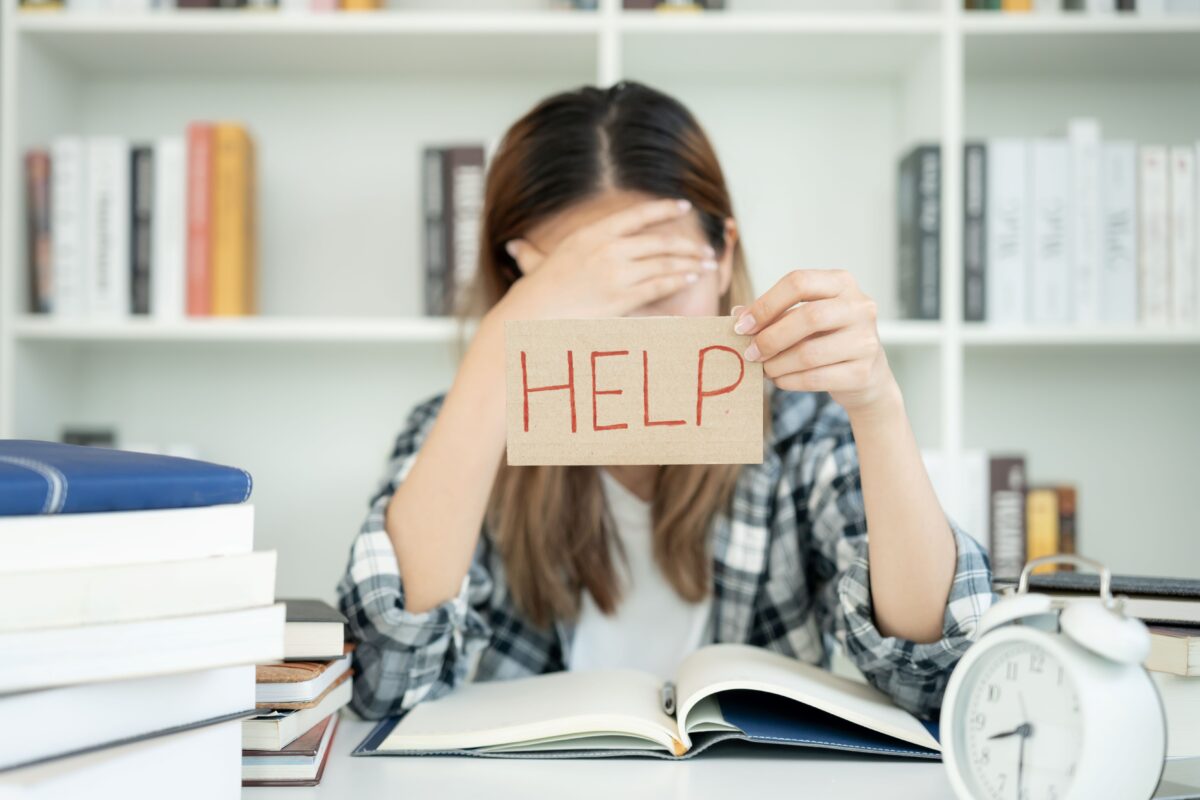By: Maria Quintanilla, a Mason student majoring in Exploratory
“Promise me you’ll always remember — you’re braver than you believe, and stronger than you seem, and smarter than you think.” — Christopher Robin from Winnie the Pooh
Young people today face a unique set of challenges that make them particularly vulnerable to anxiety and depression. Approximately 2.7 million teenagers and young adults are dealing with mental health issues stemming from environmental stressors and societal pressures. Factors such as cyberbullying, academic demands, and the pervasive influence of social media contribute significantly to these struggles. Let’s explore how anxiety and depression affect young people, and well-being strategies to cope with those mental health struggles.
What are Anxiety and Depression?
Anxiety is defined as a constant sense of worry and fear that feels excessive or doesn’t go away. It often involves anticipating future concerns and is commonly associated with physical symptoms such as muscle tension or a rapid heart rate. Many young people face challenges with their well-being, often coming from factors such as academic stress, societal expectations, social media toxicity, or struggles with identity. Approximately one in seven individuals from ages 10 through 19 experience mental health conditions that significantly affect their daily lives, making it difficult to manage self-care, complete schoolwork, or even get out of bed.
Depression is a mental health condition marked by a persistent low mood that disrupts daily activities and behaviors. People with depression often experience sadness, disinterest in activities, or feelings of hopelessness that can last for weeks, months, or even longer. Causes of depression may include environmental stressors, trauma, genetic predispositions, or a combination of these factors. The causes of depression can be varied, including environmental factors, trauma, specific triggers, or hereditary influences.
Symptoms of Anxiety and Depression
While anxiety and depression are distinct conditions, they share some overlapping symptoms. Recognizing these signs early can help in seeking appropriate support.
Symptoms of anxiety include:
- Persistent worry or fear that feels uncontrollable
- Feeling constantly on edge or irritable
- Experiencing physical symptoms such as sweating, trembling, or dizziness
- A sense of being out of control
Symptoms of depression include:
- Low energy or overwhelming fatigue
- Feelings of sadness, emptiness, or hopelessness
- Restlessness or difficulty concentrating
- Changes in appetite or weight
If you or someone you know exhibits these symptoms, consulting a healthcare specialist is an important first step toward improvement.
How to Manage Anxiety and Depression
Addressing anxiety and depression requires resilience, patience, and a proactive approach. Here are some strategies to help manage these conditions:
- Seek support: Opening up to someone you trust – such as a close friend, family member, or mental health professional – can give you both relief and perspective. Sharing your feelings and thoughts can relieve your emotional burdens, and listening to guidance can help you see that it’s possible to find hope and well-being strategies that work for you.
- Practice mindfulness and deep breathing: Practicing mindfulness meditation exercises or spending 5 to 10 minutes on deep breathing techniques can calm your mind and body. Practices such as diaphragmatic breathing, guided meditation, or progressive muscle relaxation are excellent tools to reduce stress.
- Incorporate physical activity: Exercise is a proven method for boosting mood and alleviating stress. Even a 10-minute walk can release endorphins, improve focus, and enhance overall well-being. Activities like yoga and Pilates can also help by combining physical movement with mental clarity.
- Adopt healthy lifestyle changes: Small adjustments to daily routines can significantly improve mental health. Eating a balanced diet, staying hydrated, and reducing caffeine or alcohol consumption can stabilize your energy levels and improve your mood. Consistency is key to experiencing these benefits.
- Consider professional intervention: Sometimes, managing anxiety and depression requires professional intervention. Therapists can provide coping mechanisms, while psychiatrists may recommend medications if necessary. Every journey is unique, and seeking help is a sign of strength.
In conclusion, anxiety and depression can deeply affect a person’s quality of life. If you’re struggling with either anxiety, depression, or both, it’s important to remember that these conditions are manageable with the right support and strategies. Through self-care, professional help, and lifestyle changes, you can manage mental health challenges well and find hope. Recovery is a journey, not a destination – and every small step counts toward a brighter future.
Additional Resources
- TimelyCare offers free online mental health counseling, anytime and anywhere, for Mason students.
- Mason’s Counseling and Psychological Services offers many options for mental health services.
- Mason’s free Mental Health First Aid Training teaches how to help someone who is suffering from a mental health issue.
- This video presents a 10-minute meditation for anxiety.
- This Anxiety and Depression Association of America article features more tips to manage anxiety and stress.
- This video presents coping skills for anxiety or depression.
Write one of these Thriving Together Series features! We’re looking for contributions on all topics related to well-being. Read other Thriving Together Series articles here and contact us at [email protected] for guidelines. Thank you for helping our Mason community thrive together online!






















